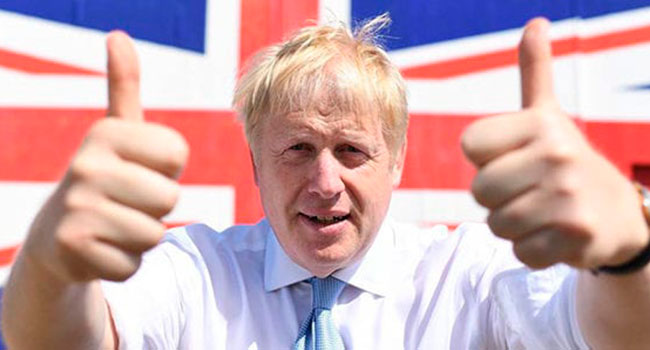 Three years ago, almost 52 per cent of electors voted in a referendum to pull Great Britain from the European Union. It was the first major, painful defeat for the German-controlled EU’s banks and multinationals.
Three years ago, almost 52 per cent of electors voted in a referendum to pull Great Britain from the European Union. It was the first major, painful defeat for the German-controlled EU’s banks and multinationals.
However, Great Britain has still not left the European Union, even though the exit was scheduled to take place on March 29, 2019.
Two years earlier, Britain had activated Article 50 of the Treaty of Lisbon, which allows members-states to leave the union. But Brexit hasn’t occurred because Britain has failed to reach an agreement with the Brussels-headquartered EU establishment.
No agreement was reached because of the arrogant intransigence of the Brussels conclave. The leadership group is trying to humiliate Great Britain and use it to scare other countries that wish to escape the German prison of the European Union.
According to new British Prime Minister Boris Johnson, Brexit will happen on Oct. 31, with or without an agreement. He believes an irregular Brexit is preferable to a bad deal that works against his nation and its people.
Brexit will liberate Great Britain from the shackles of the European Union, and it will be done with full respect for the will of the British people.
But there are still those who want to delay or cancel a proud Brexit.
Brexit isn’t going to be the end of the world for Great Britain, just as staying out of the European Economic Community previously wasn’t disastrous.
The British economy, after a short and problematic period, should be significantly more competitive. In the longer term, Great Britain will also fully regain the ability to pursue national policy in all areas. And it will prosper by being out of the undemocratic and highly bureaucratic European Union, which is dominated by Germany.
Brexit opponents essentially want the British people’s will to be annulled and the referendum thrown into the trash. They warn that Brexit without a deal will be nightmarish and chaotic. They suggest it will:
- endanger national unity;
- create huge deficits in food, medicine and fuel that will spark panic;
- cause blackouts at ports and airports;
- bring about the destruction of British businesses;
- deal decisive blows to the export and financial sectors;
- and ruin the tourism industry with delays, cancellations and bureaucracy.
But realistically, we can expect Johnson’s government to take appropriate and prudent action for the future of the British economy and its people. It will draw up a well-co-ordinated exit plan that will minimize the negative effects of Brexit.
“Our economy is fundamentally strong, so today we can make many choices,” said British Chancellor of the Exchequer Sajid Javid on Aug. 1. “We can choose to both invest in our schools, our hospitals, our fantastic police, for example, but we can also prepare to exit the EU. And, if that means leaving with no deal, that’s exactly what we’re going to do.”
Brexit undoubtedly threatens the unity of the EU, creating an example of secession that other countries are likely to follow. And withdrawing Great Britain’s financial contribution (it paid £13 billion toward the EU budget in 2018) will significantly affect the organization.
At the same time, the Britain’s major trading partners (Germany, France, the Netherlands, Italy, Spain and Belgium) will be significantly affected. The EU as a whole will cease to have the largest share of world gross domestic product and no longer be the largest trading power internationally.
In addition, the Great Britain-United States bilateral trade agreement could prove fatal for the European Union at a time when the zone is experiencing a prolonged economic and political crisis.
In the face of heightened power struggles involving the U.S., China, Russia and the EU, it’s more than obvious that the government of U.S. President Donald Trump has decided to curb German influence in Europe and elsewhere.
The totalitarian, neoliberal European Union is a failed experiment in economic and political unity. The better alternative would be a co-operative of free European peoples and sovereign independent democratic countries from one end of Europe to the other.
Isidoros Karderinis, who was born in Athens, is a novelist, poet and columnist. He has studied economics, including post-graduate studies in the tourism economy.
Isidoros is a Troy Media Thought Leader. Why aren’t you?
The views, opinions and positions expressed by columnists and contributors are the author’s alone. They do not inherently or expressly reflect the views, opinions and/or positions of our publication.


